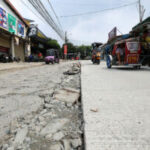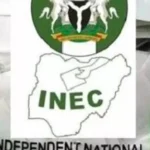… ‘It shouldn’t be ‘job for the boys’
…It’s one of best things to happen to South East since 1970 – Observers
Before his demise, Emmanuel Iwuanyanwu, an industrialist, had been decrying the little or no infrastructure to support economic growth in the South-East geo-political zone, which he insisted, needed little help to boom.
His voice became even louder on the issue when he assumed office as the president of Ohanaeze, a pan-Igbo organisation.
As well, some prominent Nigerians from the zone and outside had also expressed the same sentiment, especially over a seeming lack of “federal presence” or “marginalization” of the zone, which has impacted its peace and economic development.
The above was top among the reasons people from the zone rejoiced when the federal government established the South East Development Commission (SEDC).
But is the commission, which took off in February this year, really the answer?
Sadly, nearly one year after its inauguration, people from the zone are yet to feel the impact of the commission.
Read also: SEDC pushes for investment in agriculture, venture capital to transform South-East region
Chijioke Ogbodo, managing partner GMTNewsng.com, observed that the optimism is slowly giving way to cautious skepticism, as many people now question whether the SEDC will be a genuine instrument of transformation or just another bureaucratic contraption for political patronage.
Yet, the teeming unemployed youths are also thronging its headquarters within the Government Reserved Area in Enugu for job, and turning back with disappointment.
Uche Agbai, a lecturer at the Institute of Management and Technology (IMT) Enugu, is among the many residents that are unaware of the existence of the commission as no visible activity has been noticed at its premises, he noted.
Apart from Enugu, many residents in other cities in the zone are expressing doubt over the commission’s operations, with some insisting that it is yet to make a mark in the states across the zone.
On the impact so far, Ogbodo, a veteran broadcast journalist, noted that nine months into its existence, the visible impact of the SEDC remains minimal. While it is understandable that institutional setup and bureaucratic groundwork take time, the absence of a clear operational roadmap, publicized projects, or stakeholder engagement initiatives has fueled frustration among the citizens.
He said that communities that have suffered from the dual blow of insecurity and infrastructural decay expected the commission to hit the ground running with short-term interventions – especially in rebuilding damaged roads, schools, and small businesses affected by unrest. Instead, what is mostly seen are media mentions and administrative formalities, Ogbodo noted.
The lack of tangible progress, according to him, underscores the urgent need for the SEDC to move from rhetoric to results. The commission must communicate its priorities, timelines, and budgetary framework to the public. Such transparency will not only restore confidence but also allow for collaboration with state governments, private investors, and local communities.
Ken Onyekaozulu Ofor, a social and political analyst, decried that the commission has not made any tangible impact in line with its broad mandate.
In the same vein, Emeka Okereke, former director general, Enugu Chamber of Commerce, Industry, Mines and Agriculture, noted that the SEDC is mandated to address challenges in education, agriculture, infrastructure, security, environment, tourism, sports, and human capital development in the South-East zone.
But the industrialist regretted that the commission is yet to commence any meaningful project in the zone.
Okereke, who described the establishment of the SEDC as a strategic development move for the South-East, urged that the objective should not be defeated, considering that the commission’s presence is yet to be felt.
Read also: SEDC: Igniting an economic renaissance in Nigeria’s southeast
“The SEDC became operational around February 2025 after the inauguration of its board,” Okereke said.
“Almost a year later, there is still no physical evidence of impact. They are still on the drawing board and planning”.
According to him, the only publicized activity by the SEDC was a roadshow held in Abuja earlier in the year to network with development partners.
“Some of us felt that such a roadshow should have been held in the South East, perhaps, in Enugu, Aba or Onitsha, so that stakeholders and international partners could experience firsthand the environment and challenges of the region,” he said.
Chuka Okoye, executive director, Centre for Human Rights Advocacy and Wholesome Society (CEHRWAS), sees the commission as a political settlement for certain individuals, particularly those easterners in the APC, who are political allies of the presidency.
“It may likely become another conduit pipe for embezzlement, just like the Niger Delta Commission, which has had little to show in terms of meaningful impact since its inception.
As long as the board and officials of the said commission are made up of politicians, I do not expect anything truly impactful from it,” he said.
“For me, there has been no visible impact so far.”
Toeing the same vein, Nnamdi Elekwachi, a political analyst, described the commission as a child of necessity, to borrow Lugard’s words, but it is yet to be seen in effect.
“For a commission like that, one planted in a place where war and wars had been fought with promises of reconstruction, rehabilitation and reconciliation not met, it requires such a commission to swing into action and narrow gaps in the region with dispatch. But sadly, and I regret to say this, it appears the commission is just ‘a job for the boys,’” Elekwachi said.
But away from the non-performance, Ofor observed that within the short period, the SEDC has carried out preliminary consultations and budget preparations.
According to him, while the delay may be sending wrong signals to the people of the zone, the commission is waiting for mobilization of funds from the federal government, needed to execute its projects.
“The commission has made some reasonable consultations with key stakeholders, including the chambers of commerce across the South-East and the five state governors,” he said.
“However, projects have not started because they are yet to be mobilised. They are still doing groundwork in preparation for take-off once funds are released.”
He further noted that the delay was not peculiar to the SEDC, explaining that other newly created regional development commissions across the six geopolitical zones were also awaiting federal funding.
“Apart from the North East Development Commission, which was established earlier under Muhammadu Buhari, late former president, the other five zonal commissions created by the current administration have not taken off,” Ofor added.
Also seeing light in the tunnel, Obinna Nwagbara, executive director, Youth and Students Advocates for Development (YSAD), said that the establishment of the South East Development Commission (SEDC) is a welcome development.
“You may recall that the bill for its establishment suffered a series of setbacks during former President Muhammadu Buhari’s administration.
Fortunately, it was passed by the National Assembly and signed into law by the current president, Bola Ahmed Tinubu,” Nwagbara said.
For him, it is early to write-off the commission as another “job for the boys.”
According to him, “Nine months should be considered a short-term period in its life. It is expected that the last nine months were used to put the commission in order in terms of appointments, recruitments, and forging strategic partnerships.
“I am aware of the establishment of the South East Investment Company to mobilise long-term capital for infrastructure projects across the Southeast. I am also aware that the commission has entered into a partnership with the UNDP and probably with other development partners.
The commission has its budget already approved. The SEDC is a long-term initiative, and I am optimistic that, if well managed, it will contribute toward addressing the development gaps in the Southeast,” the YSAD executive director said.
While calling for patience, Okereke expressed optimism that the commission would begin implementation of its projects by the first quarter of 2026.
“I want to give them the benefit of the doubt. Hopefully, by next year, we will start seeing infrastructural projects that will improve the South East environment and economy,” he added.
But many argued that the commission can do broader engagements and consultations with the little takeoff grant it has, because if it cannot do something with little fund, it can hardly impact with huge fund.
“We are not asking them to build 100 bridges in one year, but get to meet the people you are to serve, explain your mandate and seek their buy-in.
“Who knows of SEDC? Do you know if not because your office asked you to do a story on them? They should impress the region from their little beginning for us to have confidence that they can deliver when Tinubu billions land from Abuja,” Agbai said.
On his part, Onyewuchi Akagbule, a senior lecturer at Nnamdi Azikiwe University, Awka, urged the leadership of the commission to be serious with its mandate of boosting development across the zone as the federal government would not have created SEDC if it had option.
“The Federal Government was forced to create SEDC because it has to replicate it across the six geopolitical zones.
“So, SEDC leadership should not expect so much from the government, but meticulously manage whatever funds it gets to do something for the South-East zone,” Akagbule said.
On the issue of security, some of the analysts acknowledged slight improvements in recent times, attributing it partly to quiet collaboration between the commission and security agencies.
“Security is one of SEDC’s core mandates. Although such efforts are not usually made public, I believe they are networking with relevant stakeholders to address insecurity in the region,” Okereke said.
But Nwagbara thinks that the commission has not impacted security in the zone that much.
“Responding to your question on whether the establishment of the SEDC has contributed to the return of some people who fled their homes in parts of the zone, I would say no,” Nwagbara said.
“The commission could not have contributed to the tranquility that is being experienced in some parts of the South-East, which is prompting some people to start returning home. “The commission is yet to start implementing projects. I would attribute this to the efforts of state governors in the region and the federal government toward addressing insecurity in the region.
For example, here in Abia, the Okigwe–Umunneochi axis used to be a den of kidnappers, but that is in the past now since the government of Alex Otti came on board and introduced some initiatives that helped in combating crimes in the state. The governors of Anambra State and Imo State have also been working hard in the area of security. The arrest and prosecution of Samuel Ekpa in Finland also contributed to dousing the tension in the region,” he said.
For those insinuating that the SEDC is another “job for the boys”, Elekwachi and Nwagbara differed.
“There is the feeling of inclusion; that at last the South-East region now has a commission like other regions,” Elekwachi said.
Regarding what the commission should be doing to fulfill its mandate, Nwagbara notes that the board and management of the commission should exhibit the highest level of sincerity and patriotism in discharging their duties and also see their positions as an opportunity to develop the region.
“For me, the SEDC is one of the best things to happen to the South East since 1970, when the Civil War ended. It should be seen as an opportunity to implement the 3Rs — Reconciliation, Rehabilitation, and Reconstruction, that was announced shortly after the civil war ended, which was unfortunately abandoned by the federal government.
“The agitations and insecurity in the South East are responses to the perennial marginalisation of the zone. Now that the region has the opportunity to address these issues, it should be taken seriously. The commission should carry the people along, working with civil society organizations in the South-East to earn the trust of the people, the federal government and partners,” Nwagbara concluded.
Pointing at the way forward, Okoye suggested, “The commission needs to organise a South-East Development Summit with the active participation of relevant stakeholders, especially notable technocrats, civil society actors, investors, and scholars to draft a clear roadmap and design sustainable developmental strategies that can elevate the region to an enviable height”.
He also advised the commission to interface with the five states of the region to identify gaps and assess needs, insisting that way it can articulate the challenges of the region and be able to address same.
“It should also make sure that the right machinery is out in place so that its offices or branches at states tag along or follow its development agenda.
“The commission should also identify economic problems plaguing the region; and work towards restoring comparative advantage the region once enjoyed,” Okoye concluded.
For Okereke, the SEDC should prioritize regional connectivity, especially through improved rail and road transportation networks to enhance movement of goods and people within the zone.
“Transportation is key to trade and development. The South-East used to be a manufacturing hub in the 1970s through the early 1990s, and restoring industrial activities will help create jobs and improve security,” Okereke advised.
For Ogbodo, the SEDC sits at a critical crossroads and it can either become a historic vehicle for healing and rebuilding, or sink into the long list of Nigeria’s missed opportunities.
“For now, the people are watching and waiting for signs that it will deliver on its promise. What the region needs is not another institution for political convenience, but a catalyst for sustainable peace, equity, and prosperity.
“The SEDC can prove through action that it stands for service rather than self-interest, and it may yet write a new chapter in the story of regional renewal,” he noted.











